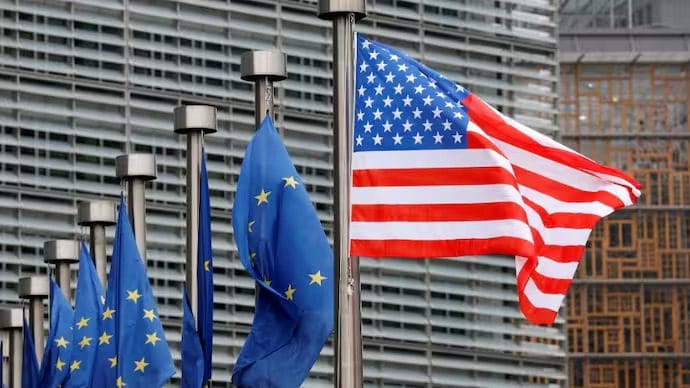🎧 Listen to This Article
As tensions escalate in transatlantic trade talks, the European Union is signaling its readiness to retaliate against U.S. imports—including Boeing aircraft—should the U.S. impose a “baseline” 10% tariff on EU goods. With the July 9 deadline looming and negotiations progressing slowly, this potential trade clash has the makings of a major policy inflection point in global commerce.
At the center of the dispute is former President Donald Trump’s trade agenda, which aims to reimpose broad tariffs on European exports under the banner of reciprocal treatment. While the EU has scrambled to broker a deal to avoid tariffs as high as 50% on its goods, officials across the bloc are preparing a €116 billion ($125 billion) counterstrike in the event talks break down or yield an asymmetrical outcome.
“We will need to retaliate and rebalance in some key sectors if the U.S. insists on an asymmetrical deal,” said Stéphane Séjourné, EU industry commissioner.
Key Sectors at Stake: Civil Aviation, Agriculture, and Automobiles
European aviation giant Airbus SE—headquartered in Toulouse—is expected to be among the hardest hit, facing new competition from U.S.-based Boeing, which may receive more favorable treatment. EU officials are determined not to let Airbus be undercut by what they call “unfair, unilateral tariff action.”
Likewise, politically sensitive American exports—such as soybeans, poultry, motorcycles, and aluminum—are in the EU’s crosshairs. These are concentrated in electoral strongholds like Louisiana, home to House Speaker Mike Johnson.
The potential tariffs, which the EU has pre-authorized, are split into two tranches:
- €21 billion in fast-response measures targeting existing Trump-era tariffs on steel and aluminum
- €95 billion in additional duties aimed at newer threats, including Trump’s proposed levies on semiconductors, pharmaceuticals, and automotive exports
WTO Compliance and Strategic Leverage
EU officials have emphasized that any retaliation will be calibrated for WTO compliance. However, they remain wary of U.S. demands involving fishery quotas, economic security clauses, and tariff asymmetries that could breach global trade norms.
“We are also working on the rebalancing measures, which would protect European businesses and European workers,” EU Trade Commissioner Maroš Šefčovič said from Berlin.
Why It Matters for International Tax and Business Professionals
This emerging trade standoff is not merely a headline risk—it poses significant operational, tax, and compliance challenges for multinational enterprises on both sides of the Atlantic:
- Transfer Pricing Disruptions: Tariff-induced cost shifts could distort arm’s length pricing and intercompany profitability models.
- Supply Chain Realignments: Businesses may need to reroute shipments or reallocate production based on shifting duty landscapes.
- Tax Incentive Volatility: Subsidies or investment incentives linked to specific trade conditions may come under review.
- Customs & Compliance Risks: New tariff structures could heighten audit scrutiny, documentation requirements, and import-export compliance burdens.
Given the scale of exposure—over €380 billion ($439 billion) in EU exports potentially impacted—this is a critical watchpoint for CFOs, global tax directors, and trade compliance officers.
For further details, clarification, contributions, or any concerns regarding this article, please get in touch with us at editorial@tax.news. We value your feedback and are committed to providing accurate and timely information. Please note that our privacy policy will handle all inquiries.



